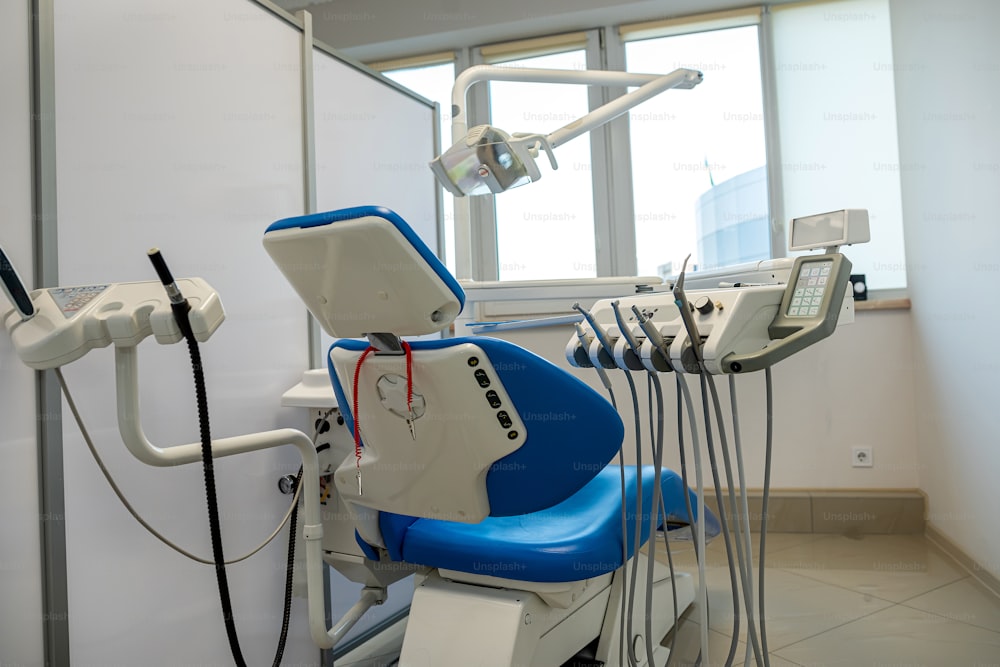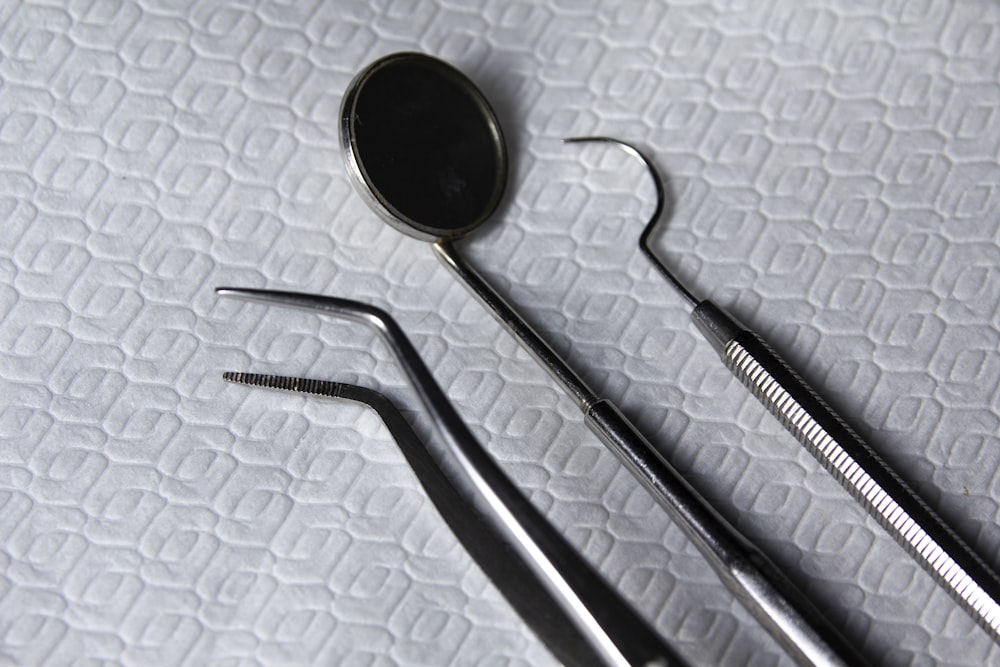Dental Implants Athens OH - Mono Dental Implant Granville OH
Dental Implants Athens OH - Mono Dental Implant Granville OH
Blog Article
Dental Implant Centerburg OH - Oral Surgery
When figuring out what sort of anesthesia is used for dental implants, it becomes essential to explore numerous options available to sufferers. The selection of anesthesia can significantly impact the consolation of the process, the general experience, and the pace of recovery (Dental Implant Centerburg OH).
Local anesthesia is essentially the most generally used sort for dental implant surgical procedures. In this technique, an anesthetic agent is injected near the surgical site. Local anesthesia effectively numbs the focused space, allowing the oral surgeon or dentist to perform the process with minimal pain to the affected person. It is beneficial because patients stay totally awake and aware throughout the process, fostering a way of control.
Sedation dentistry presents another method for individuals who might feel anxious in regards to the process. Sedation can range from gentle to deep, permitting patients to chill out whereas their implants are positioned. Different ranges of sedation could be achieved by way of oral sedatives, nitrous oxide, or intravenous strategies. The level of relaxation could be tailor-made to the specific wants or anxiousness ranges of the affected person.
Dental Implant Columbus OH - Dental Services - Ohio
Nitrous oxide, commonly generally identified as laughing fuel, is a well-liked choice for dental procedures, together with implants. This type of sedation works shortly, permitting patients to really feel relaxed and euphoric. Administration is convenient, because the gasoline is inhaled through a mask positioned over the nostril. Patients can sometimes resume regular activities shortly after the process, making nitrous oxide a favorite among both dentists and sufferers.
Another possibility is oral sedation. This methodology involves taking a prescribed sedative before the appointment. Patients typically feel sleepy and fewer conscious of their environment while still being in a position to communicate with their dental group if essential. While oral sedation is effective, its onset and duration can range from person to person, so dentists must evaluate individual needs rigorously.
Intravenous (IV) sedation offers deeper levels of sedation, best for longer or extra complex procedures. This method allows for speedy adjustment of sedation levels, because the anesthetic is run instantly into the bloodstream. Patients on this state could really feel extremely relaxed and might not keep in mind the procedure afterward. IV sedation sometimes requires a extra in depth recovery period in comparison with local anesthesia alone.
Dental Implant Alexandria OH - Implant Dentist

General anesthesia, though usually reserved for extra invasive surgical procedures, may also be thought-about for dental implants in specific conditions. This kind of anesthesia induces a state of complete unconsciousness, requiring close monitoring by an anesthesiologist. General anesthesia is appropriate for sufferers with extreme anxiety, those who have issue sitting still for lengthy durations, or when a number of procedures are carried out concurrently.
The number of anesthesia may also depend on the patient's medical historical past and any underlying health conditions. Some illnesses may enhance the chance of problems during anesthesia. Detailed discussions between the patient and the dental group can lead to a custom-made anesthetic plan that ensures safety while enhancing comfort.
Many patients categorical concern relating to the side effects related to anesthesia. While unwanted effects can range primarily based on the kind used, most native anesthetics present minimal risks. Common issues embrace momentary numbness and swelling close to the injection website. For those that go for sedation, unwanted aspect effects may embody drowsiness, dizziness, or nausea.
Dental Implant Granville OH - Emergency Dentist
Recovery time also plays a role within the alternative of anesthesia. Local anesthesia usually allows for a faster recovery, enabling sufferers to resume regular actions inside hours. Sedation methods could require more time for the medication to wear off, necessitating preparations for transportation post-procedure.
The significance of communication between the affected person and the dental practitioner can't be overstated. Sharing concerns and preferences permits for a tailor-made anesthetic strategy. A thorough evaluation helps to determine the most acceptable sort of anesthesia to ensure each consolation and effectiveness in the course of the dental implant procedure.

In addition to consolation and security, the overall success of dental implants can also be influenced by the selection of anesthesia. The results of anxiety on the physique can complicate surgical procedures and lengthen recovery instances. Therefore, a proper anesthetic plan performs a vital function in not only quick consolation but additionally the long-term success of the dental implants.
Dental Implant Johnstown OH - Oral Surgery
Patients ought to be prepared to discuss their medical historical past, anxiousness ranges, and personal preferences when consulting a dentist for dental implants. This open dialogue permits the practitioner to create an anesthetic technique that suits the individual while guaranteeing the procedure runs smoothly and successfully.

The quest for a pain-free dental implant process could be daunting for so much of. The various types of anesthesia create choices that can match individual needs, existence, and luxury ranges. The right alternative of anesthesia can flip a potentially annoying dental go to into a more manageable experience.
In conclusion, understanding what type of anesthesia is used for dental implants is essential for patients making ready for the process. From local to basic anesthesia, each technique has its advantages and considerations. With a big selection of choices out there, sufferers can work carefully with their dental group to discover out the best approach, enhancing not solely comfort but also the probability of a profitable consequence. Ultimately, the selection of anesthesia immediately impacts each the expertise during the procedure and the overall satisfaction with dental implants.
- Local anesthesia is predominantly used for dental implants, offering focused numbing to the surgical web site while allowing the affected person to stay totally aware.
- Common local anesthetics include lidocaine, articaine, and mepivacaine, each chosen for their effectiveness and period of action.
- Sedation dentistry can also be employed for sufferers with anxiousness, typically utilizing average sedation methods like nitrous oxide or oral sedatives.
- General anesthesia may be an option for complex cases or in patients with severe nervousness or special needs, ensuring a totally unconscious state.
- The alternative of anesthesia depends on the affected person's medical historical past, stage of tension, and complexity of the implant process.
- During the process, monitoring of important indicators ensures the affected person's security and luxury ranges are maintained.
- Post-surgery, sufferers are often given directions concerning pain management, which can embody over-the-counter pain relievers alongside instructed dosages of native anesthesia.
- The use of anesthetic agents can vary based on individual responses, necessitating a tailor-made method from the dental skilled.
- Some dental practices could supply virtual reality or distraction techniques to help sufferers manage anxiety alongside anesthesia choices.undefinedWhat sort of anesthesia is used for dental implants?
Dental Implant Hartford OH - Dental Implant Services in Ohio
What is the commonest kind of anesthesia used for dental implants?undefinedThe commonest sort of anesthesia for dental implants is native anesthesia, specifically lidocaine. This numbs the surgical space to attenuate pain during the procedure.
Can I request sedation for my dental implant surgery?undefinedYes, many dentists supply sedation options, such as oral sedation or nitrous oxide, for sufferers who feel anxious or choose a extra relaxed experience during dental implant surgery.
Will I be awake through the dental implant procedure?undefinedIf native anesthesia is used, you'll be awake however numb in the treatment space. If sedation is chosen, you may be in a lightweight sleep and never totally conscious of the process.
How long does the anesthesia last through the procedure?undefinedThe effects of local anesthesia usually last for 1 to 3 hours, depending on the particular medication used. However, the duration can range based mostly on individual elements.
Dental Implant Johnstown OH - Best Dental Implants near Ohio

Are there any unwanted effects of dental anesthesia?undefinedPossible unwanted effects can embrace temporary numbness, swelling, bruising, and, in rare cases, allergic reactions (Dental Implant Columbus OH). It's important to discuss any concerns with your dentist beforehand.
Can I eat or drink after receiving anesthesia for my dental implant?undefinedIt's best to keep away from consuming or ingesting until the numbness has completely worn off to prevent biting your tongue or cheek. Follow your dentist’s home specific post-operative instructions for one of the best results.
How is anesthesia administered for dental implants?undefinedLocal anesthesia is typically administered by way of a small injection immediately into the gum tissue. Sedation options may contain inhalation or oral medicine that will assist you relax before the procedure.
Do I need somebody to drive me house after the procedure?undefinedIf you’ve obtained sedation, it’s beneficial to have someone drive you home, as you might feel groggy or disoriented. Local anesthesia alone usually doesn't require assistance.
Dental Implant Sunbury OH - Dental Implants
What if I even have a worry Full Report of needles?undefinedIf you've a worry of needles, discuss this along with your dentist. They can provide strategies to assist ease your nervousness, corresponding to using topical numbing agents earlier than the injection.
Report this page